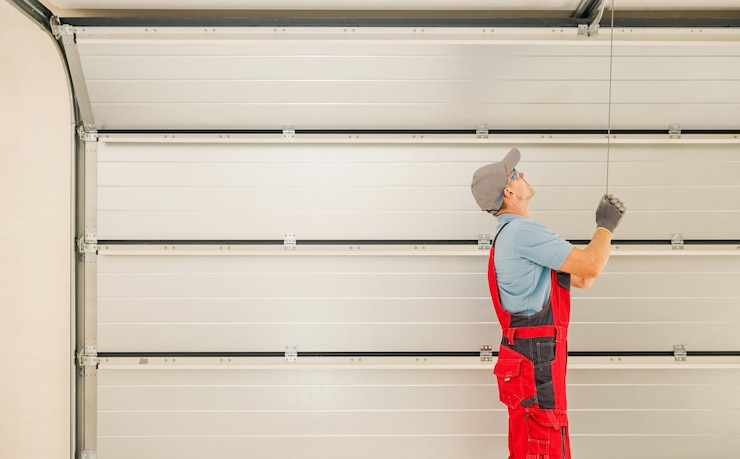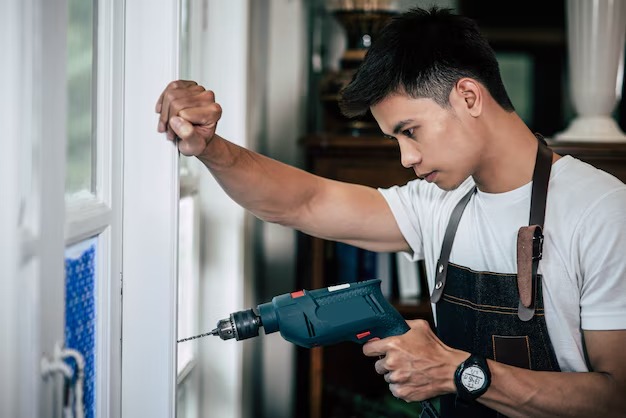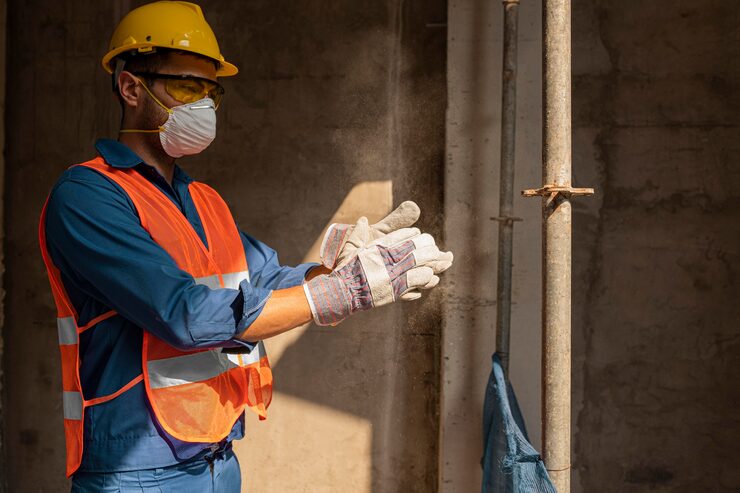A noisy or jerky garage door can be more than just an annoyance—it might signal a deeper problem with your garage door rollers. These small but crucial components ensure your door glides smoothly on its track. When rollers become worn, damaged, or misaligned, your entire garage system suffers. If you’re dealing with persistent noise or an uneven door, it might be time to consider a Garage Door Roller Repair. This article will explore why rollers fail, how to detect problems, and when professional help is necessary.
Why Garage Door Rollers Matter
Garage door rollers are small wheels, usually made of nylon, steel, or plastic, that sit inside the tracks on either side of your garage door. These rollers help lift and lower the door smoothly, working in tandem with the door’s counterbalance system. High-quality rollers ensure the door moves effortlessly and quietly, while faulty rollers can cause vibration, resistance, and even damage to the garage door track or opener system.
Common Signs Your Rollers Need Repair
Recognizing the early signs of roller problems can save you from expensive repairs later. Here are some common symptoms that indicate your garage door rollers may need attention:
1. Unusual Noises
If your garage door has become unusually loud or makes grinding, screeching, or squeaking sounds, the rollers could be worn or lack lubrication. Nylon rollers are quieter than metal ones, but even they can become noisy with wear and tear.
2. Jerky or Uneven Movement
A garage door that shakes, shudders, or stalls while opening or closing might have a roller issue. Misaligned or cracked rollers can interrupt the door’s smooth glide along its tracks.
3. Visible Wear and Tear
Take a close look at the rollers. Are they cracked, chipped, or misshapen? If so, it’s time for a repair or replacement.
4. Door Off-Track
Damaged rollers can cause the garage door to come off its track, leading to dangerous operation. If this happens, stop using the door and consult a technician immediately.
Causes of Roller Problems
Roller damage can occur due to multiple reasons, including:
- Age: Like all mechanical parts, rollers wear out over time. Most last 5–7 years depending on usage.
- Lack of Maintenance: Infrequent lubrication can cause metal rollers to corrode or seize up.
- Poor Installation: Improper alignment or use of low-quality rollers can lead to early failure.
- Excessive Use: If your garage door is used multiple times daily, rollers may wear out sooner.

Types of Garage Door Rollers
Understanding different roller materials can help you make better repair or replacement decisions:
- Nylon Rollers: Quiet and smooth, ideal for residential use. More expensive but require less maintenance.
- Steel Rollers: Durable but noisy. They require regular lubrication.
- Plastic Rollers: Least expensive but also the least durable. Often found in low-end garage doors.
When choosing new rollers, always consult a professional to match the type with your specific door setup.
DIY Repair vs. Professional Help
Some homeowners might consider fixing or lubricating rollers themselves, but this can be risky. Here’s why hiring a professional is often the best route:
- Safety: Garage doors are under high tension. Mishandling parts can cause injuries.
- Proper Tools: Professionals have the right tools and know-how to make precise adjustments.
- Diagnosis: A trained technician can also inspect related components like the track, cables, and opener, ensuring no underlying issues are overlooked.
If you’re interested in a more comprehensive solution, you may want to consider a garage door roller replacement to extend your door’s lifespan and restore peak performance.
Regular Maintenance Tips
To get the most out of your rollers and avoid frequent repairs:
- Lubricate rollers and tracks every 6–12 months with silicone-based lubricant.
- Inspect rollers, hinges, and tracks for damage monthly.
- Tighten any loose screws or bolts that may cause vibration.
- Replace damaged rollers as soon as possible to avoid further system strain.
These small steps can make a big difference in performance and safety.
Final Thoughts
Garage door rollers may seem like minor components, but they play a critical role in your garage door’s functionality. Ignoring signs of wear can lead to bigger issues and higher repair bills. Staying proactive with inspections and maintenance—or choosing timely Garage Door Roller Repair—ensures your door stays smooth, silent, and reliable.










